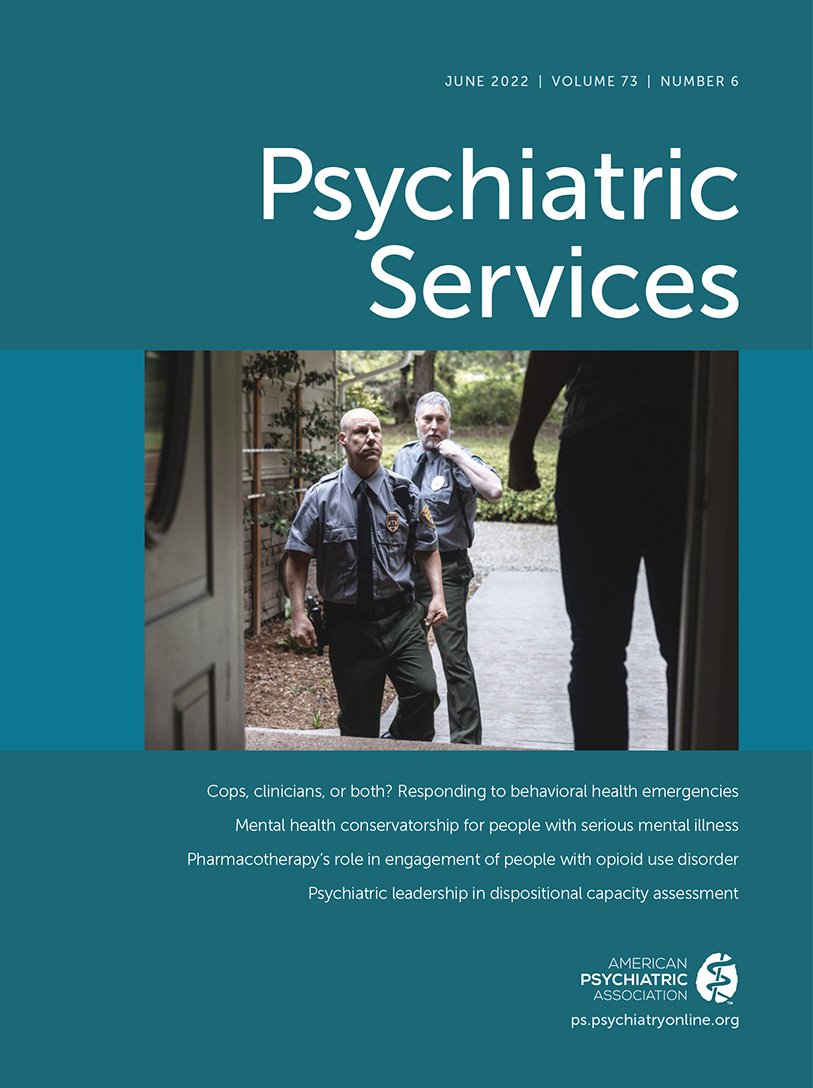Trauma and Serious Mental Illness
This Editor’s Choice collection was published online in May 2022. To review all collections, please visit the Editor’s Choice section of ps.psychiatryonline.org
Understanding the experience of individuals with serious mental illness is important for the development of services to promote recovery. Symptoms arising from serious mental illness may predispose a person to experience traumatic events and to develop posttraumatic stress disorder (PTSD). There is also evidence that childhood adversity and trauma are strongly associated with increased risk for serious mental illness. Although many studies have reported higher rates of trauma exposure among persons with serious mental illness compared with the general population, the screening, diagnosis, and treatment of PTSD in most mental health centers remain suboptimal, and traumatic experiences are often overlooked and unaddressed. Lack of diagnosis and treatment may be due to many factors, including lack of training, fear that discussing traumatic experiences may worsen psychiatric symptoms, and concern that other symptoms are more detrimental than those that are trauma related.
The first sections of this month’s Editor’s Choice Collection address how trauma can contribute to the development of serious mental illness and the importance of screening for trauma in this population. The final sections address the impact of trauma on serious mental illness and solutions for treating trauma of people with serious mental illness.
Trauma as a risk factor for serious mental illness
Beliefs About the Causes of Psychosis Among Persons With Psychosis and Mental Health Professionals: A Scoping Review
Rosenthal Oren R, Roe D, Hasson-Ohayon I, et al.
Psychiatr Serv 2021; 72:1178–1192
https://ps.psychiatryonline.org/doi/10.1176/appi.ps.202000460
State Legislators’ Opinions About Adverse Childhood Experiences as Risk Factors for Adult Behavioral Health Conditions
Purtle J, Lê-Scherban F, Wang X, et al.
Psychiatr Serv 2019; 7:894–900
https://doi.org/10.1176/appi.ps.201900175
Screening for trauma of people with serious mental illness
Untreated Posttraumatic Stress Among Persons With Severe Mental Illness Despite Marked Trauma and Symptomatology
Chessen CE, Comtois KA, Landes SJ
Psychiatr Serv 2011; 62:1201–1206
https://doi.org/10.1176/ps.62.10.pss6210_1201
Trauma History Screening in a Community Mental Health Center
Cusack KJ, Frueh BC, Brady KT
Psychiatr Serv 2004; 55:157–162
https://doi.org/10.1176/appi.ps.55.2.157
Service Use and Self-Reported Symptoms Among Persons With Positive PTSD Screens and Serious Mental Illness
Minsky SK, Lu W, Silverstein SM, et al.
Psychiatr Serv 2015; 66:845–850
https://doi.org/10.1176/appi.ps.201400192
Impact of trauma on people with serious mental illness
Psychotic-Spectrum Symptoms, Trauma, and Posttraumatic Stress Disorder Among Suicidal Inner-City Women
Reviere SL, Battle J, Farber EW, et al.
Psychiatr Serv 2003; 54:1290–1292
https://doi.org/10.1176/appi.ps.54.9.1290
Does a Study Focused on Trauma Encourage Patients With Psychotic Symptoms to Seek Treatment?
Amsel LV, Hunter N, Kim S, et al.
Psychiatr Serv 2012; 63:386–389
https://doi.org/10.1176/appi.ps.201100251
The Subjective Experience of Youths at Clinically High Risk of Psychosis: A Qualitative Study
Ben-David S, Birnbaum ML, Eilenberg ME, et al.
Psychiatr Serv 2014; 65:1499–1501
https://doi.org/10.1176/appi.ps.201300527
Perceived Trauma During Hospitalization and Treatment Participation Among Individuals With Psychotic Disorders
Paksarian D, Mojtabai R, Kotov R, et al.
Psychiatr Serv 2014; 65:266–269
https://doi.org/10.1176/appi.ps.201200556
Interventions for people with serious mental illness WHO have experienced trauma
Integrating Trauma-Informed Care Principles in Behavioral Health Service Organizations
Conover K, Sharp C, Salerno A
Psychiatr Serv 2015; 66:1004 [Letter]
https://doi.org/10.1176/appi.ps.201400526
Use of Fidelity Assessments to Train Clinicians in the CBT for PTSD Program for Clients With Serious Mental Illness
Lu W, Yanos PT, Gottlieb JD, et al.
Psychiatr Serv 2012; 63:785–792
https://doi.org/10.1176/appi.ps.201000458
Developing Effective Treatments for Posttraumatic Disorders Among People With Severe Mental Illness
Rosenberg SD, Mueser KT, Friedman MJ, et al.
Psychiatr Serv 2001; 52:1453–1461



